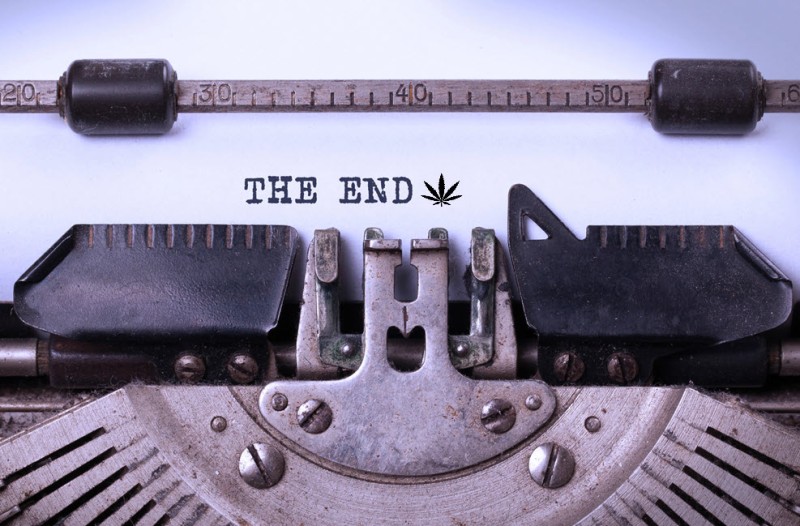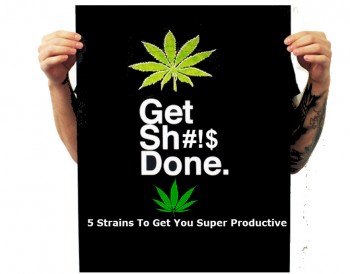
The Way of the Narrative – The Deceptions of Prohibition
You might remember a time when the airwaves were filled with outrageous claims like, "If you smoke one joint, a cop dies in Colombia." This narrative, pushed some two decades ago, was part of a larger prohibitionist agenda that sought to demonize drug use by linking it directly to violence in drug-producing countries.
It's true that Colombia has long grappled with drug-related violence, a problem that persists to this day. However, the assertion that your personal consumption was tantamount to murdering a police officer was prohibition's clever way of shifting blame from a failed policy onto you, the consumer.
The reality is far different. If drugs were legal and regulated, criminal cartels would lose their most profitable cash crops, effectively stripping them of the power and wealth that fuels their operations. It's not your joint that's killing cops; it's the very prohibition that claims to protect us.
As we've seen with cannabis legalization in various states, these prohibitionist narratives have been exposed for what they are: lies. Today, we're going to delve into how these narratives shape public discourse and how the process of legalization has not only debunked these claims but also revealed them as, in my opinion, deliberately constructed deceptions.
The way of the narrative is powerful, but as we'll explore, it's not impervious to truth. Let's unravel the deceptions of prohibition and see how reality stacks up against the fear-mongering of the past.
What is lost due to prohibition?
While the claim "smoking a joint kills a cop" is clearly outlandish, it's a calculated tactic used by prohibitionists to outsource the consequences of their failed policies and shift blame onto you, the consumer. If we dig deeper, we can discern their underlying message: "The money you spend on illegal drugs goes directly to cartels, and these cartels are violent, often killing police officers."
Sure, that's one perspective. But let's flip the script: If drugs were legal, all that money would flow into public coffers via taxes. This simple shift in thinking exposes a fundamental flaw in prohibitionist logic. They not only push blame onto consumers but fail to recognize how their very system created the financial incentives for cartels in the first place.
It wasn't until 1971 that we began seeing a significant rise in international drug cartels. Why? Because prohibition creates an artificial scarcity, motivating those who operate outside the law to deal in these high-demand products. As a result, they rake in billions, untaxed and unregulated.
This is the crux of the prohibitionist paradox: they seem to forget that it's their system that created the opportunity for criminals to capitalize on a product that people clearly want. By criminalizing substances, they've handed over a massive, lucrative market to those willing to break the law.
But the costs of prohibition extend far beyond empowering criminal enterprises. It robs individuals of bodily autonomy, criminalizing personal choices about what to put in one's own body. Moreover, it makes drugs more dangerous due to a lack of regulation. Without quality control or safety standards, consumers are at greater risk of contaminated or adulterated products.
This is the true face of prohibition: it not only gives power to criminals but also strips law-abiding citizens of their rights. It creates a system where personal freedom is sacrificed on the altar of a misguided moral crusade, all while failing to achieve its stated goals of reducing drug use or related harms.
In essence, prohibition doesn't just lose the war on drugs; it actively creates the conditions for that war to exist in the first place. It's a self-perpetuating cycle of failure, where the proposed solution exacerbates the very problems it claims to solve. As we continue to unravel the deceptions of prohibition, it becomes increasingly clear that what we lose isn't just tax revenue or personal freedom – we lose the opportunity for a more rational, humane, and effective approach to drug policy.
The Shakey Foundation of False Narratives
Cannabis prohibition stands as a prime example of how false narratives can shape policy and public opinion. The foundation of this prohibition, the Controlled Substances Act (CSA), places cannabis in Schedule I, a category reserved for substances with "no medical value and a high potential for abuse." Yet, this classification flies in the face of objective reality.
Numerous studies and countless patient testimonials attest to cannabis's medical benefits, ranging from pain management to epilepsy treatment. As for its potential for abuse? It's remarkably low. Less than 9% of users develop any form of dependency, a far cry from the danger implied by its Schedule I status. To put this in perspective, cannabis shares this category with heroin, a substance with dramatically different risk profiles and addiction rates.
The glaring inconsistency between cannabis's actual properties and its legal classification exposes the fragility of prohibition's logical framework. If we can clearly see that Schedule I status for cannabis is based on suppositions rather than facts, it calls into question the validity of the entire system. This realization opens the door to a critical examination of other substances' classifications, leading us to wonder: how many other drugs are misclassified due to special interests that don't want them publicly available?
I've previously argued that the CSA serves as Big Pharma's shield against open-source medicine, while simultaneously empowering the state to criminalize non-violent behavior. But the false narratives underpinning drug prohibition predate even the CSA. We need only look at the origins of cannabis prohibition to see how racist ideologies and sensationalist media played crucial roles.
Harry J. Anslinger, a known racist and career bureaucrat, along with media mogul Randolph Hearst, pushed fear-mongering narratives that appealed to a puritanical majority. Their campaign of misinformation laid the groundwork for decades of misguided policy.
Today, as legalization efforts gain momentum, these false narratives are crumbling. Take Maryland, for example. In just one year since legalizing recreational cannabis, the state generated over $1 billion in sales. This revenue now serves the public instead of fueling drug cartels, showcasing the tangible benefits of evidence-based policy over prohibition.
Can you see how these false narratives inform policy and ultimately steal from citizens? They rob us of personal freedom, medical options, and economic opportunities. They divert billions into criminal enterprises instead of public coffers. They justify the incarceration of non-violent offenders, tearing apart families and communities.
The unraveling of cannabis prohibition serves as a stark reminder of the power of false narratives and the importance of critically examining the foundations of our laws. As we continue to expose these deceptions, we pave the way for more rational, just, and beneficial policies. The question now is: how many other areas of our lives are governed by similarly shaky narratives, and what might we gain by challenging them?
The Sticky Bottom Line
As we've explored throughout this article, false narratives have a profound and often devastating impact on public policy. These fabricated stories, spun by politicians, bureaucrats, and special interest groups, don't just shape laws - they actively harm average citizens, make drugs more dangerous, and funnel public money into the pockets of criminals.
The prohibition narrative, with its roots in racism, fear-mongering, and corporate greed, has led to policies that strip away personal freedoms, criminalize non-violent behavior, and create artificial scarcities that empower cartels. It's a self-perpetuating cycle of harm, where the proposed solution exacerbates the very problems it claims to address.
Understanding this mechanism is crucial if we hope to undo the damage inflicted by these narratives. We must recognize that many of our drug policies aren't based on scientific evidence or public welfare, but on the agendas of those who care little for the average citizen and focus solely on their bottom line.
The unraveling of cannabis prohibition offers a glimpse of what's possible when we challenge these false narratives. We see increased tax revenues, reduced criminal activity, safer products, and expanded medical options. But cannabis is just the beginning. How many other areas of our lives are governed by similarly deceptive narratives?
It's time to start asking hard questions and demanding evidence-based policies. We need to scrutinize the motivations behind our laws and regulations, particularly when they restrict personal freedoms or funnel resources away from public benefit.
Let's commit to unraveling these cancerous narratives from our society. It won't be easy - these stories are deeply ingrained and fiercely defended by those who profit from them. But with persistence, critical thinking, and a commitment to truth, we can expose these deceptions for what they are.
By doing so, we give ourselves a chance to usher in a brighter future - one where policy is shaped by facts rather than fear, where personal freedom is respected, and where public resources serve the many rather than enriching the few. The sticky bottom line is this: our future depends on our ability to see through these false narratives and demand better. Are you ready to join the fight for truth?




_Blume.jpg?width=350)

